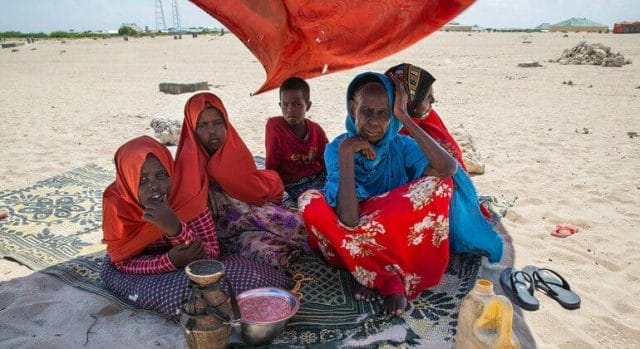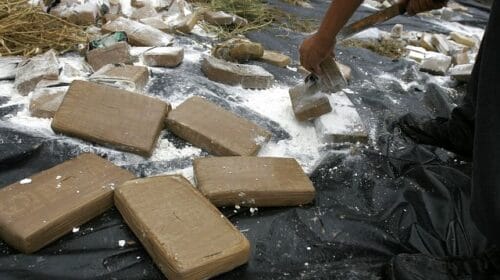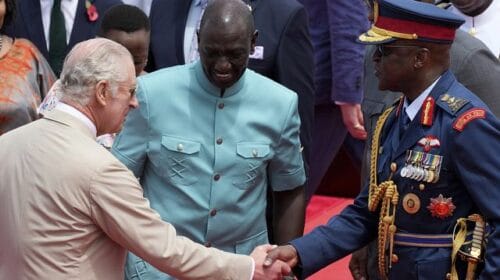‘Catastrophic’ drought displaces one million in Somalia, world asked to ‘step up’ support

More than 755,000 people have been internally displaced in Somalia because of the severe dry spell this year, bringing the total figure to one million since January when the drought began, according to new figures released by UNHCR and the Norwegian Refugee Council (NRC).
“This one million milestone serves as a massive alarm bell for Somalia,” said Mohamed Abdi, NRC’s Country Director in Somalia.
Somalia is going through a two-year historic dry spell, the likes of which have not been seen in more than 40 years.
And an expected fifth failed rainy season is bound to displace many more families, as famine looms on the horizon, the UNHCR said.
Death: ‘A matter of time’
The UN agency spoke with Hussein, an elderly father of eight who, having fled his village after drought ravaged their crops and livestock, recently arrived with his family at a camp for displaced people.
“The people left behind, they have no chance,” he said. “It is just a matter of time until they die. Even here we might die because we have nothing”.
The number of people facing crisis hunger levels in Somalia is expected to rise from some five million to more than seven million in the coming months – exacerbated by the effects of climate change, and rising food prices triggered by the conflict in Ukraine.
Vulnerable communities
In terms of climate vulnerability, Somalia is ranked second highest globally, based on 2019 data, according to the University of Notre Dame’s Global Adaptation Initiative ranking.
“Vulnerable communities are the hardest hit by the effects of the climate crisis, leaving many families unprotected and increasing displacement,” said UNHCR’s Representative in Somalia, Magatte Guisse.
The 2022 Gu rainy season, from March to June, came to an early end in May, with lower rainfall recorded and little to no rain in June.
Northern areas recorded 30 to 60 per cent of the average rainfall, while the central and southern areas received 45 to 75 per cent – marking the fourth consecutive failed rainy season since late 2020.
‘Step up to save lives’
The UNHCR official noted that even before this latest crisis, “the Somalia situation was already one of the most underfunded”.
“While we and humanitarian partners are doing what we can to respond, we simply have insufficient resources,” he said. “The international community must step up to save lives and support this humanitarian response”.
In June, UNHCR announced that it needs $9.5 million for Somalia, as part of its regional appeal for the Horn of Africa, to help displaced communities affected by the catastrophic drought.




